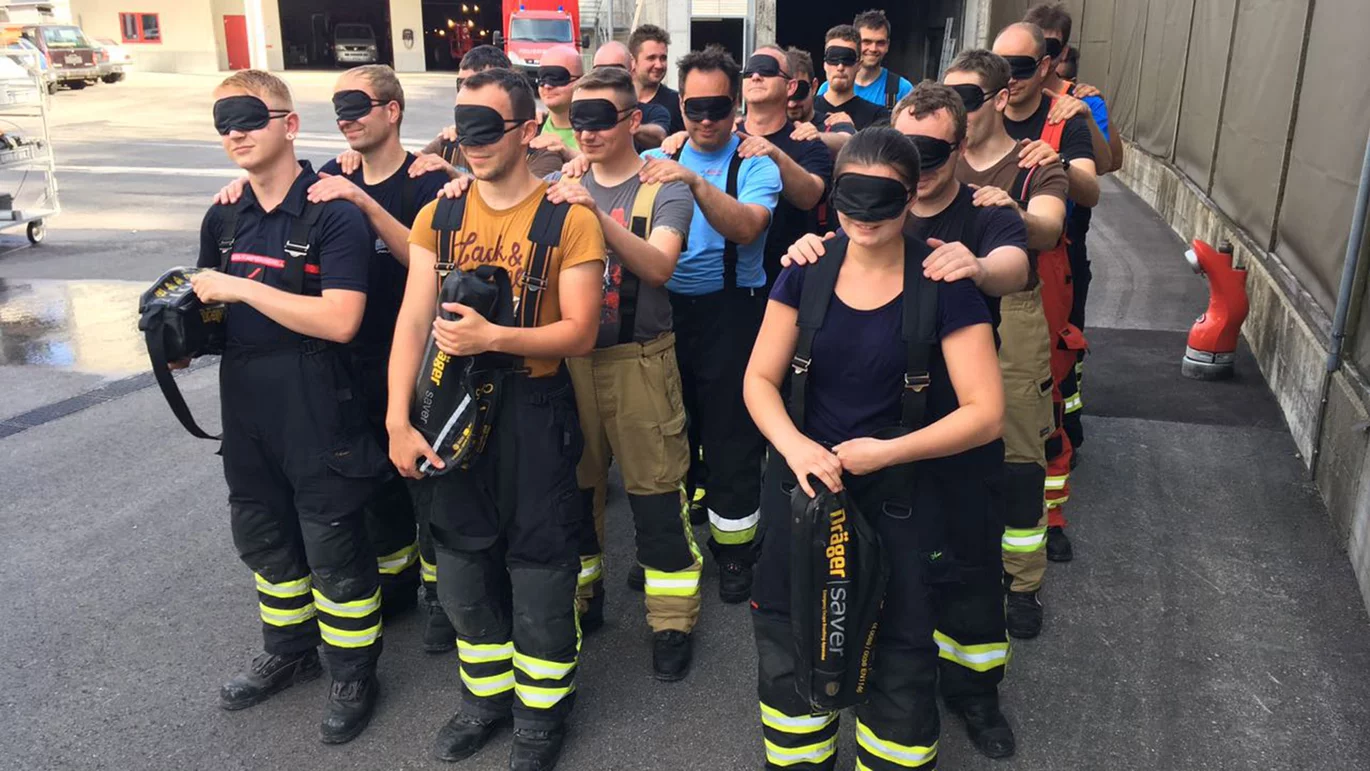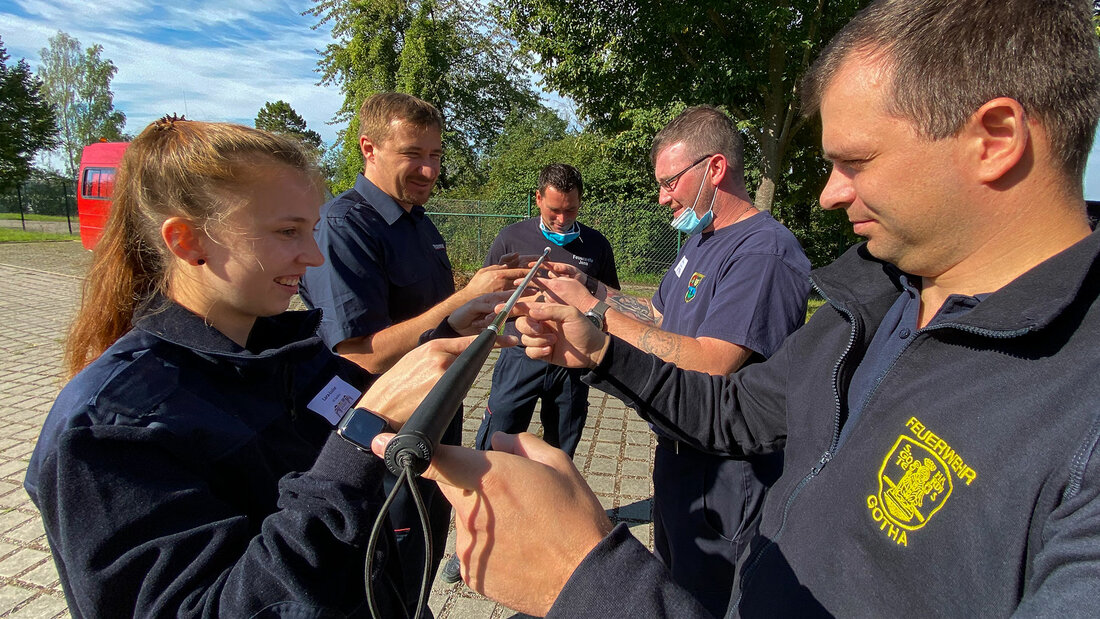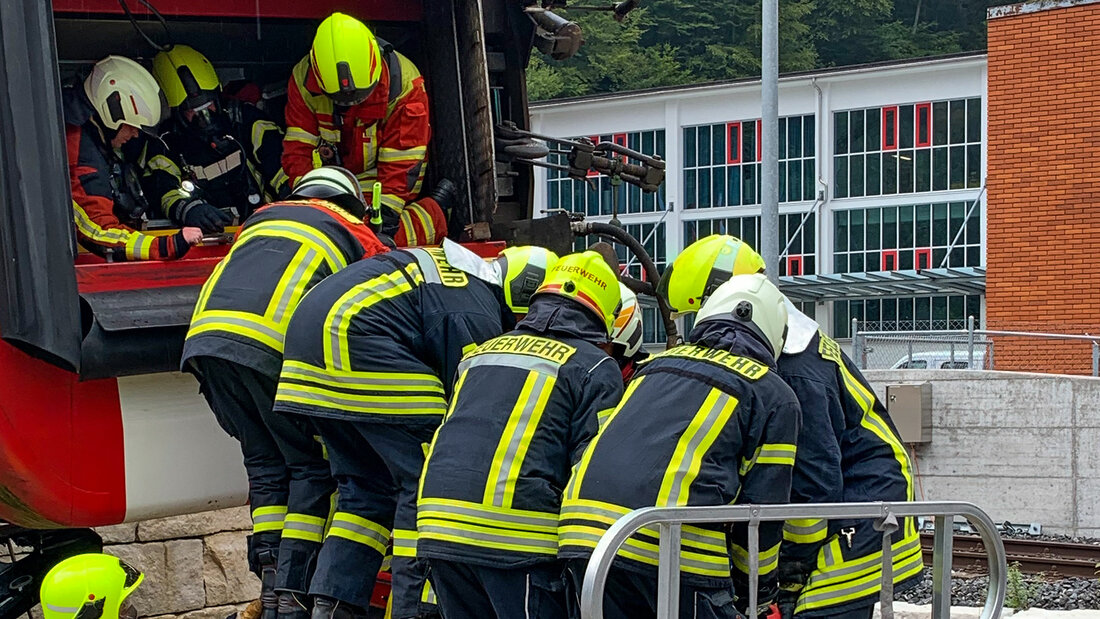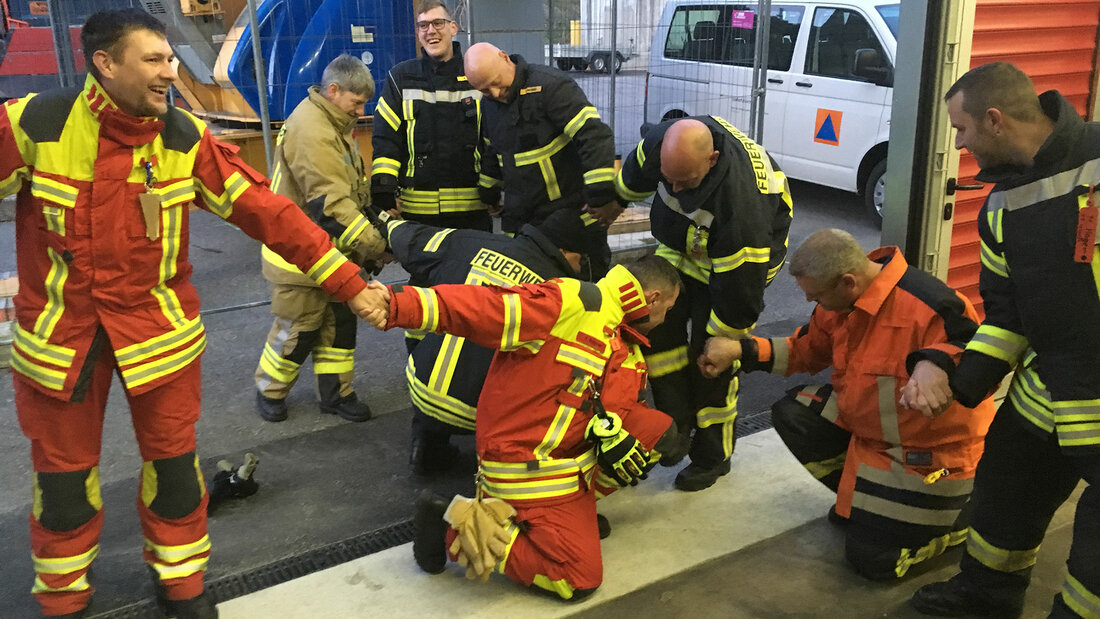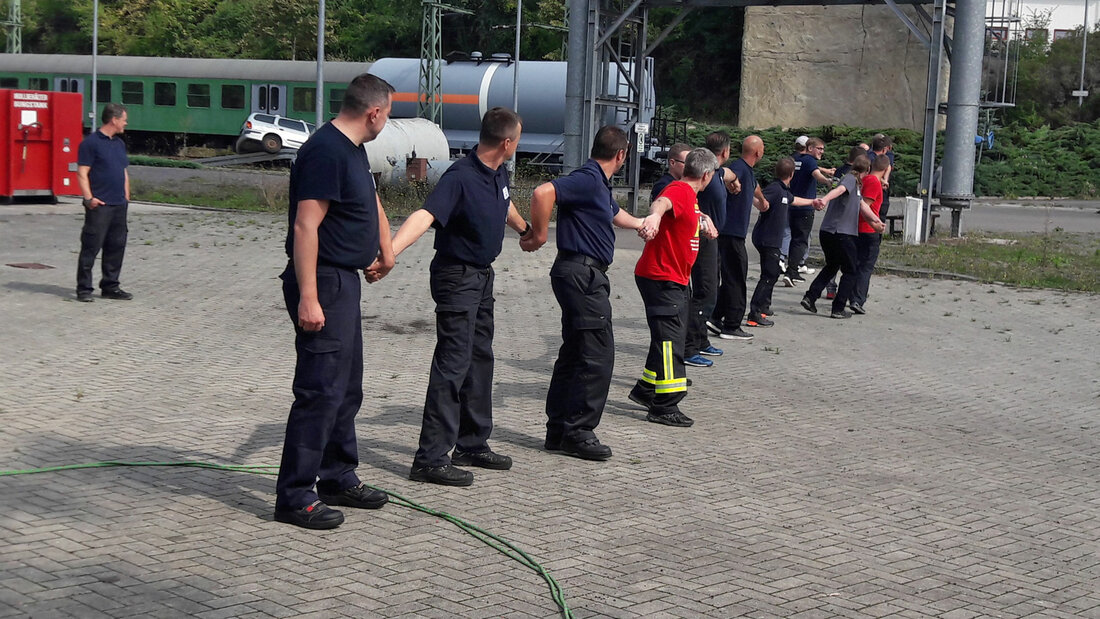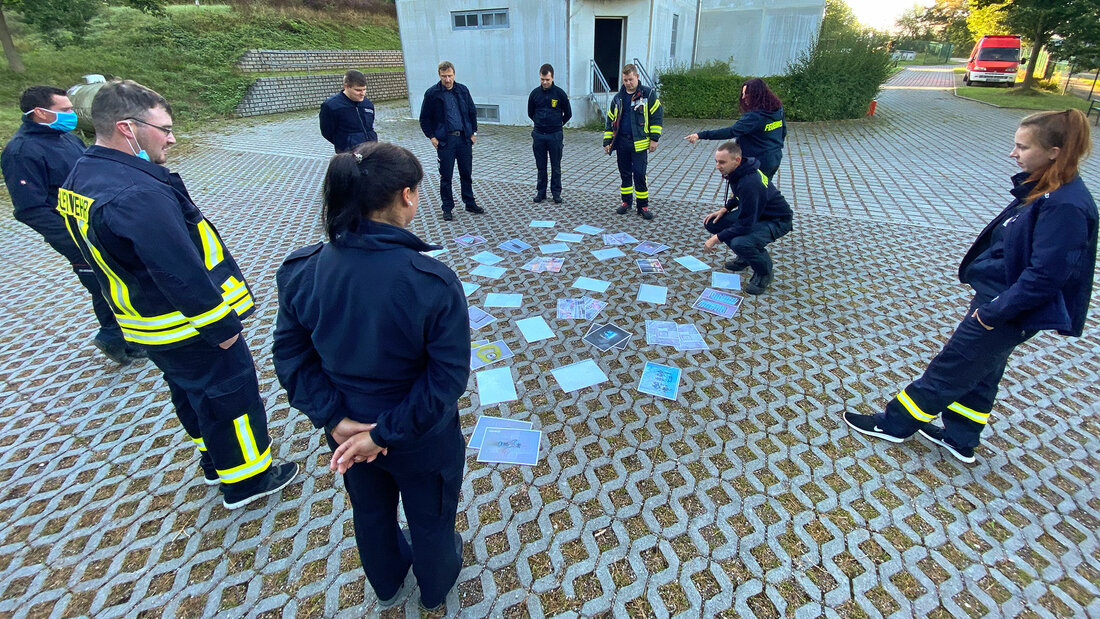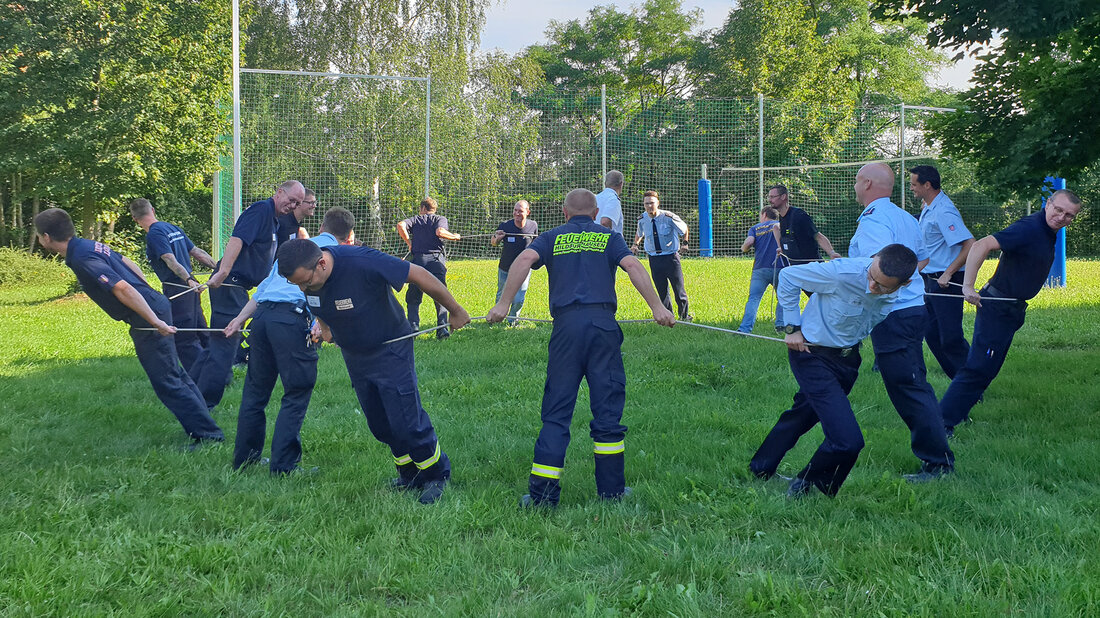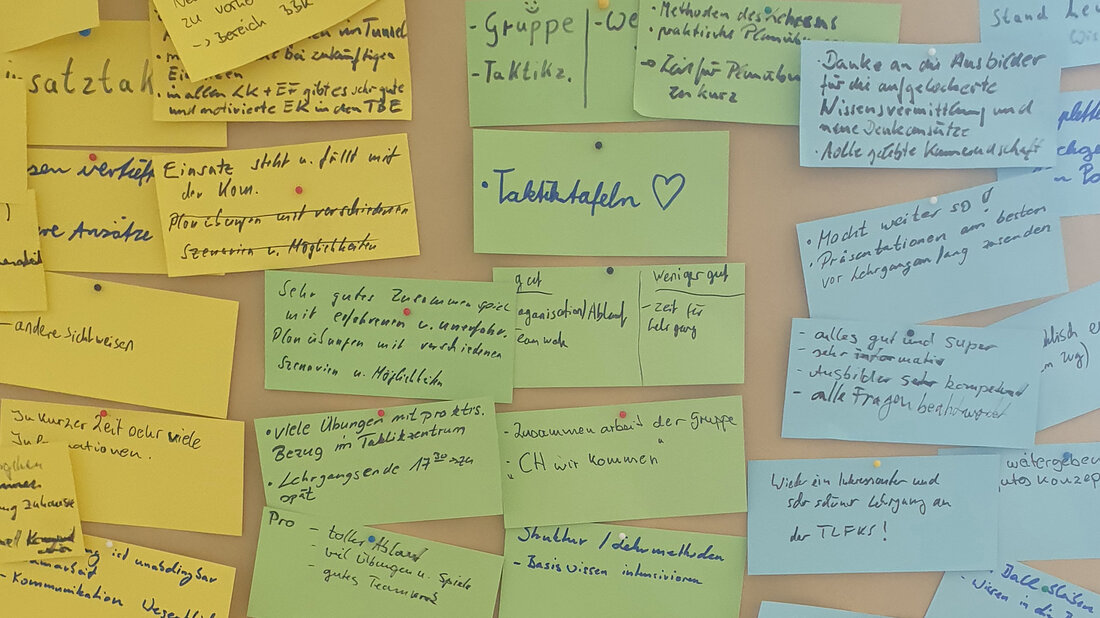The preparatory and practical courses «Fire Fighting in Road and Rail Tunnels» at the Thuringian State Fire and Civil Protection School (TLFKS) place high demands on the participants. In order to boost motivation and attention to the extensive learning content, the training team relies on adventure-based educational elements.
Challenges of tunnel training
The qualification of the multipliers for tunnel training comprises two central elements: a four-day preparatory course at the Thuringian State Fire and Civil Protection School (TLFKS) in Bad Köstritz (D) and a one-week practical course on the training tunnel facilities at the International Fire Academy in Balsthal. The central objective is to communicate the operational concept for road and rail tunnels. The participants should remember the operational concept in a lasting and action-guiding way. In addition, they are to be enabled to prepare their fire services at their stations for such operations.
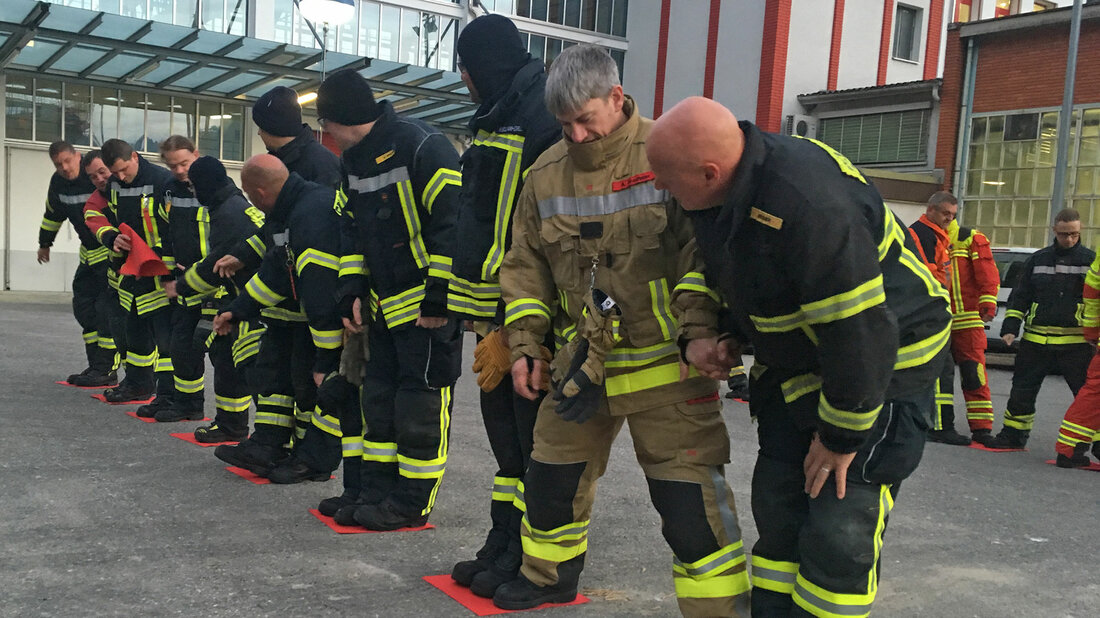
The training is associated with the following challenges in particular:
- heterogeneous groups of participants,
- participants who are mostly physically active in their jobs and are not used to lengthy training sessions, including seated sessions,
- the steep learning curve required due to the compact course formats,
- the danger of training being perceived merely as a burden.
Therefore, the training team at the TLFKS - Patrick Wagner, Kai Pfützner, Marc Stielow and Anja Rödiger-Erdmann - developed a coordinated concept for the courses in terms of content, methodology and didactics.
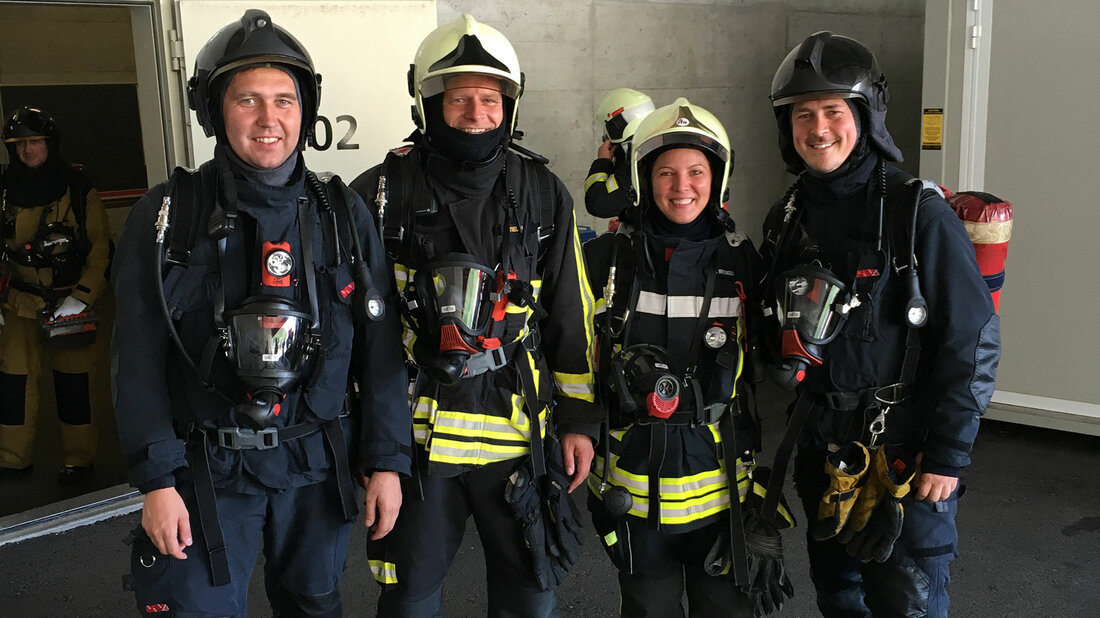
Activation activities promote learning, communication, and team-building promote learning, communication and team building
The first day of the course begins with a «couple interview» to set the mood for the topic and as a catalyst for good communication among the participants. In addition to the training expectations, an individual fortitude is asked for to focus on already existing resources. The interviewees introduce themselves to each other and should be encouraged to actively participate in the course by speaking in front of the group. In a challenge on the second day, the participants have to assemble a long-term compressed air breathing apparatus, run up a tower and complete the obstacle course of a BA training parkour as well as balance a search stick on their index fingers as a team and put it down in a coordinated manner. Twelve such activities from the TLFKS repertoire that have proved successful in the course are presented in a brochure in German on the adventure-based educational concept of the preparatory and practical courses «Firefighting in Road and Rail Tunnels ».


